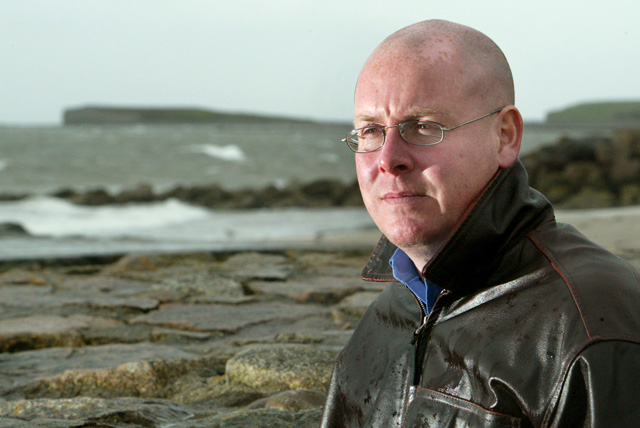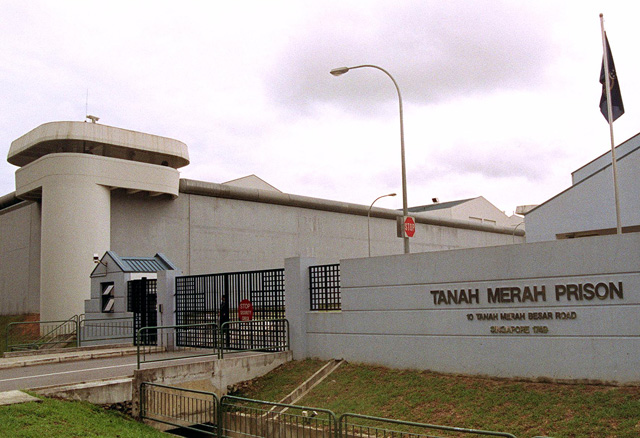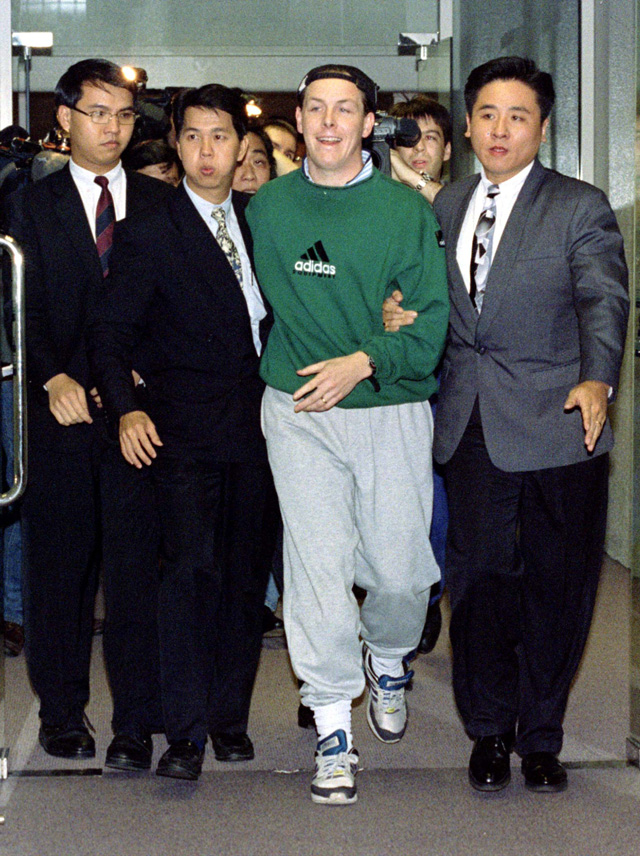In early 1995, Nick Leeson, a Singapore-based trader, single-handedly brought down one of the world’s biggest banks. Twenty years later, he shares his story of loss and redemption with Southeast Asia Globe
February 26 is a relatively unremarkable day in history. No dictators were deposed, no countries gained independence and no bloody wars ended. But this was the day, a little more than 20 years ago, that the actions of one young man in an office in Singapore brought Barings Bank, the second-oldest in the world, crashing down. That man was 27-year-old British derivatives trader Nick Leeson.

“I loved every day that I worked in the industry, apart from when it started to go wrong,” says Leeson, who was played by Ewan McGregor when his story was told in the 1999 movie Rogue Trader. “It’s exciting, it’s challenging, it’s everything that I wanted in a job.”
Three days before that fateful day in 1995, Leeson had gone on the run with his wife in an act of “pure self-preservation”. He had accumulated more than $1.2 billion in debts for the 232-year-old bank – way more than it was worth. For nearly three years he hid bad trades in a secret error account named 88888, a lucky set of digits in Chinese culture, but not so lucky for investors in Barings, one of whom was Queen Elizabeth II of England, rumoured to have had $62 million banked with them.
“People are always going to refer to me as the original rogue trader or the disgraced banker,” says Leeson. Others, such as Kweku Adoboli of UBS and Jerome Kerviel of SocGen may have far eclipsed his losses, but Leeson is still the name most readily associated with massive bank fraud. No one has made a film about Adoboli’s or Kerviel’s actions.
On March 2, 1995, Leeson was arrested at Frankfurt airport, having spent time in a luxury Malaysian hotel and in Thailand. Weeks of extradition proceedings followed and he eventually arrived back in Singapore to face the music on November 23 wearing baggy sports gear, a backwards baseball cap and a cocksure smirk. He pleaded guilty to two counts of deceiving the bank’s auditors and of cheating the Singapore Stock Exchange, earning him a sentence of six-and-a-half years in the high-security Tanah Merah prison.
Before his actions caught up with him, life had been good for Leeson in Singapore. Arriving there with his wife in 1992, the plasterer’s son from Watford – a drab town 27 kilometres from London – was very much the cash-splashing banking whizzkid.

“I loved Singapore. It’s a great place to work,” he says. “Obviously there are very strict rules and regulations in every walk of society. But they are clear, they are consistent, they are very obvious to everybody, and if you want to break the rules, you’ll get punished.”
Leeson had broken Singapore’s rigid rules even before his spectacular arrest – he was barred from the exclusive Singapore Cricket Club over a racist comment he made and for hitting another member. The impulsive trader also spent a night in the cells after drunkenly dropping his trousers and mooning someone in a bar.
But he does admit that working in Singapore gave him the opportunity to make his mark. “The way I used to look at it was that, in England, I was a small fish in a big pond. As soon as you get out to an expat environment, wherever that may be, you become a big fish in a small pond. You move a lot quicker and, if you’re successful, what you’re doing gets a lot more attention.”
Despite the attention, Leeson reportedly kept himself to himself. “Nick didn’t talk to his colleagues much,” a former co-worker told the BBC in 2005.
He had a lot to hide. Using Barings’ money, he was betting on the market in a bid to recover the losses hidden in the error account. If he had been successful, it is possible that nobody would know the name Nick Leeson outside the rarefied world of banking.
Oddly enough, it was the 1995 Kobe earthquake that cemented Leeson’s fate. He had decided to gamble a chunk of his chips – or rather Barings’ chips – on the Tokyo Stock Exchange, usually a safe bet for traders. But Leeson had not bet on an earthquake striking the mega-city of Kobe and the Nikkei index taking a reactionary tumble.
At the time, he says he had no idea of the impact his actions might have, although he knew what he was doing was “wrong”. Today he worries that bankers are still not aware of what might happen if their actions trigger a financial catastrophe.
“I think that’s why you see so many problems in the world of finance these days,” he says. “The consequence isn’t correctly spelled out and everything that has been tried over the past 20 years is not moulding the culture in the way that it should be.” The profit-orientated culture has not changed and is unlikely to change “unless you can actually rip up the rule book and start again”, he adds.
“If you’re working within a big bank and you’re making money because you can take advantage of inefficiencies in the system, why would you want to change? If you’re a politician and your party is being largely financed by a huge hedge fund or a very successful financier, why would you have any appetite to change?”
Nowadays, Leeson sees himself as someone who is in recovery, much like an alcoholic or a drug addict. He admits to and takes “full responsibility” for his actions. In his words, he is a “reformed banker” and doesn’t blame other people for what happened to him. He says he can’t ignore what he did either. “As much as I would want to change it, I’ll never get the opportunity, so therefore I have to accept that it’s part of me and make the most of it.”

In recent years, Leeson has been making a living in part as an after-dinner speaker, often hired to give talks to audiences of bankers and financiers. He says he is “honest, candid and self-deprecating” in his speeches, but is sure to frame his role in the story as part of a bigger narrative of “negligence and incompetence on a grand scale”.
“My incompetence and negligence are very much at the forefront. The regulators, the management and the auditors all played a contributing role and they were all equally incompetent and negligent.”
He now sees the human impulse to put on a brave face as entirely natural and is careful not to lecture but, instead, tell his story in order to put over a serious message: “You don’t have to be successful all of the time.
You can learn from other people’s mistakes as well.”
Leeson first told his story back in 1996 in his autobiography – also called Rogue Trader – which he wrote while inside Tanah Merah, a prison run on “regimental lines”. He would have had plenty of time to ruminate on his actions. Locked up in a cell for 23 hours a day and with access to only three books a month, he spent a long time imprisoned in his own head. The cells had no beds and prisoners were allocated only one blanket, leaving inmates to choose between using it for warmth or as a pillow. “It’s tough. I imagine that it’s up there with the very toughest of prison regimes that you can be in. But the flip side of that is that it really was quite safe.”
But Leeson was not entirely safe. Factors outside of the prison regime’s control were to affect him deeply. At first his wife, who had got a job as an air hostess, visited him regularly. However, the strain of his incarceration eventually became too much for their relationship and they divorced. An even harder blow was being diagnosed with colon cancer. The prison authorities granted him treatment in hospital, but only if he were handcuffed to the bed. Leeson dug his heels in and refused to be handcuffed. The prison officials backed down. His health problems became so serious that it led to him being released from prison early – after serving four-and-a-half years – to receive treatment, which was successful.
After release, Leeson gained a degree in psychology and wrote a book, Back from the Brink: Coping with Stress, that tells his “complete story” interspersed with conversations with a psychologist that compare other people’s experiences with Leeson’s. He settled in Galway, Ireland, the hometown of his second wife Leona, with whom he has three children. In 2006, he became CEO of Galway United FC, a post he held until 2011. Raising his children, giving speeches and taking on consultancy jobs keeps Leeson busy these days, but he does miss the banking industry sometimes, describing it as “the best job you could possibly have”.
“I look back on all the things that happened and it was the thing that made me sick, ended up with me being in jail, so I don’t miss it that much,” he says. “But if my children told me they wanted to go and work at Goldman Sachs or one of the larger banks, I’d be delighted for them. But I’d arm them with the cautionary tale that I learned the hard way.”
For an infamous fraudster, Leeson’s regrets seem few. “I regret everything that happened while I was in Singapore,” he says. “But regret is a negative thing… You’ve got to play the cards you’re dealt, not the cards you thought you should have been given.”


